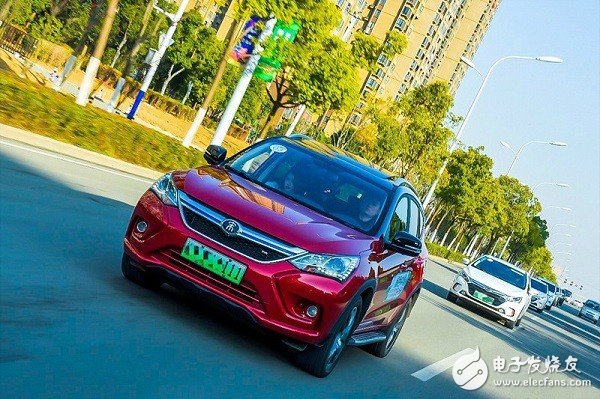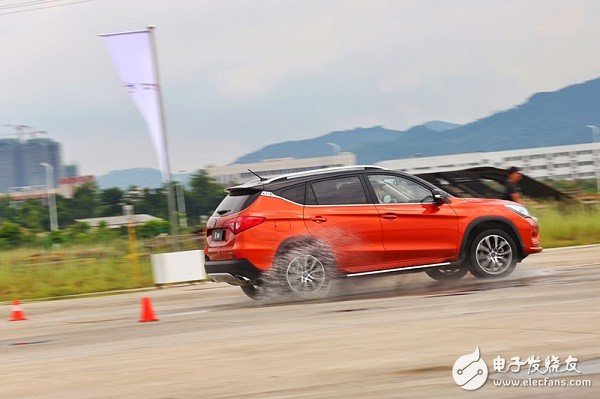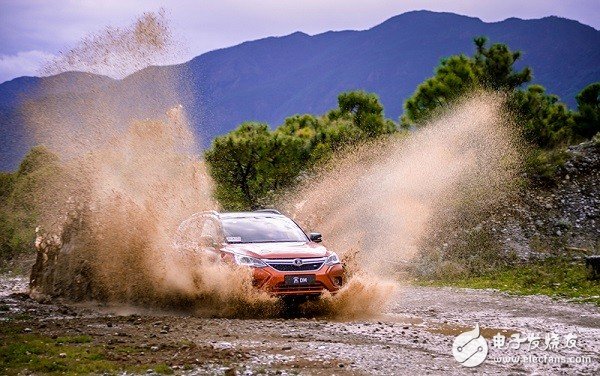In the 2018 China Electric Vehicles 100-member forum, Wang Chuanfu, who has always been an amazing speaker, has thrown new remarks recently. As the head of BYD, Wang Chuanfu called on the country to give more support to the plug-in hybrid vehicles, including financial subsidies and cancellation of consumption tax. In the face of this cry, Yang Yusheng, an academician of the Chinese Academy of Engineering who participated in the Forum of Electric Vehicles and 100 People, responded that the “plug-in hybrid†is not a new energy vehicle! Let's take a look at the related content with the car electronics editor.
For Wang Chuanfu's cry, the industry has shown different voices. Some people think that this is a reasonable suggestion made by Wang Chuanfu as a new energy practitioner. Others think that Wang Chuanfu is seeking benefits for his own company. From the current policy of China, new energy vehicles are facing subsidies, and even in the near future, they will be reverted to cancellation. At this time, Wang Chuanfu also made such remarks inevitably questioned by many people. Is the behind the shouting exposed that BYD's new energy vehicles are currently facing the anxiety of transformation?

Sales champions are difficult to hide behind the transformation anxiety
Because of its core technology, BYD has been in the field of new energy vehicles. In the global automotive market, BYD's market share has climbed to 13%. It has become China's first and only Chinese car company that has entered the automobile powers of Europe, America and Japan. Its new energy vehicles have also been sold to more than 50 countries and regions on six continents. In the domestic market, BYD has also broken the limits that new energy vehicles can only sell well in double-city cities and subsidized cities. More than 50% of sales come from non-restricted cities, and 300,000 to 300,000 high-end new energy vehicles. Among them, BYD has a 70% market share. In addition, BYD has also achieved major technological breakthroughs in cloud-track technology this year.
In the past 2017, the sales volume of BYD's new energy vehicles reached 113,669 units, exceeding the target of 100,000 units set at that time. In terms of sales figures alone, BYD is not only the champion of new energy vehicle sales, but also the first domestic car company with a cumulative sales volume of over 300,000 new energy vehicles.

Behind the sales of 300,000 BYD is difficult to conceal the transformation anxiety
It is said that entrepreneurship is difficult to keep business. Behind the three-year winning new energy vehicle sales champion, China's new energy vehicle market is rapidly emerging. In 2017, BAIC, Geely, SAIC, Jianghuai, Jiangling and other car companies began to deploy in the field of new energy vehicles. Even Zhongtai, which has rarely been involved in the field of new energy vehicles, has invested 6 billion to join the power battery market. Interested Great Wall Motors has also begun to invest 30 billion yuan for its new energy and intelligent project construction. In addition to the traditional car companies, the power of new energy vehicles is also constantly joining the car-making movement, the new round of financing completed by Weimar Automobile, the listing of Weilai Automobile, and Xiaopeng Automobile at the 2018 Consumer Electronics Show. Wonderful debut, products brought by cloud, electric coffee, etc. have announced mass production listings... These have injected a steady stream of energy into the new energy vehicle market, and BYD has been pressured to win the championship for three consecutive years.
As a company that started early in the field of new energy vehicles in China, BYD's market share has been concentrated in the market of new energy buses and hybrid passenger cars over the years. There are not many market models of pure electric passenger cars in the mainstream. The share is not high. The country's current subsidy policy for pure electric vehicles is also stronger than hybrid models. According to statistics, in the semi-annual and third quarterly reports of 2017, BYD's net profit decreased by 23.75% and 23.82% respectively. Among them, non-net profit decreased by more than 40% year-on-year. BYD expects net profit for 2017 to fall by 15.09%-20.03% year-on-year.
BYD's plug-in and hybrid models currently account for half of the sales of its 300,000 new energy vehicles. Although the plug-in models have achieved good performance, their share in the pure electric passenger vehicle market is still insufficient, and their profitability is not good. good. In contrast, SAIC passenger cars, which started late but seized the opportunity of Internet vehicles, have surpassed BYD in terms of bicycle profitability. BAIC New Energy's sales growth in 2017 increased by 50% year-on-year based on 2016. Overwhelmed the negative growth of BYD. Under this rapid growth momentum, BYD wants to keep the throne of the sales champion again. It seems that it is not so easy.

Behind the sales of 300,000 BYD is difficult to conceal the transformation anxiety
BYD is facing pressure from the power battery
In addition to their own brand peers who are committed to new energy, BYD is also faced with many competitors such as the Internet electric start-up car companies, the joint venture car companies and multinational car giants. Hundreds of crickets contend, but do not enter and then retreat Faced with a new form of competition in 2018 and various new energy vehicle policies, BYD is bound to play a "championship battle" in the field of new energy vehicles.
The main pain points in obtaining customers in foreign trade are fierce market competition, high customer acquisition costs, low customer stickiness, and single marketing methods. With the changes in the market environment, traditional marketing methods
Orange sample
Bossgoo(China)Tecgnology , https://www.cn-gangdao.com
![<?echo $_SERVER['SERVER_NAME'];?>](/template/twentyseventeen/skin/images/header.jpg)